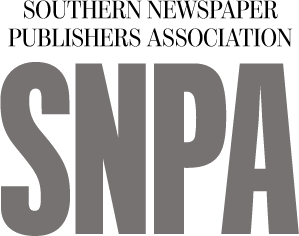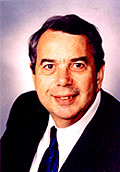Coverage tips for new reporters
It's always tough to get an assignment to cover a speech or meeting when you have little experience in that area. The following tips should prove helpful when asked to cover one of the dozens of lectures, seminars or local government gatherings across your circulation area regularly.
Do your homework: Find out all you can ahead of time about the speaker, the topic, the sponsoring organization, the agenda, etc. An online search will help, as will an advance call to the usually reliable public relations person in charge of the event.
Arrive early: Make contact with the person who has authority. He or she can give insight into what to expect, changes on the agenda, extra background information to help you write a better story. Often the media are given copies of a major speech. However, follow it closely as it could be an early draft with lots of changes when delivered. Sit near the front so you can see A/V materials, get handouts (before they run out), hear and see the speaker(s), and be recognized for questions. Dress appropriately; you represent your media organization.
Tell readers what's crucial: If you're writing an advance story, it's imperative you tell your audience the specifics of the event: exact time it starts, where it's being held (room number if pertinent), topics on the agenda, etc. For a follow-up story, you can simply give day and location. The 7 p.m. start time is irrelevant to readers following the event, but the length of the meeting can be important. How large was the crowd? Was it hostile or receptive?
Avoid the obvious: Don't tell your readers that so-and-so spoke or met the previous day. They already knew that – or they be upset you didn't tell them before. Let them know the essence of what was said or what happened. How will it affect them, their future, their checkbooks?
Stay late: Unless you're on a tight deadline, stick around following the talk or session for follow-up questions and additional quotes for your story (different from other media reps who may be there). Gather valuable contact information.
Break down jargon: How meeting insiders talk may not make sense to your audience. Translate and summarize key points so they are understandable. Get quality direct quotes. Give your readers a sense of being there, without all the waste-of-time drivel consuming most gatherings.
Think graphics: Can a table or chart explain things simply to your audience? A map of a proposed new city park will help readers know its location, rather than a generic neighborhood. Be ready to take photos if no one else shows up to do that. As you know, your online version needs visuals.
These suggestions are far from rocket surgery. But they could easily help a rookie journalist or a recently reassigned staffer. Covering sundry meetings and speeches fill your SNPA newspaper columns and websites regularly.
Long-time SNPA columnist Dr. Randy Hines is a former journalist who recently retired after 32 years of teaching at various universities. He's now back in the classroom part-time, teaching journalism at the University of North Georgia. He's authored two textbooks: "Print Matters: How to Write Great Advertising" (Racom Books) and "PR Writer's Toolbox" (Kendall Hunt). He can be reached at randyhinesapr@yahoo.com.






